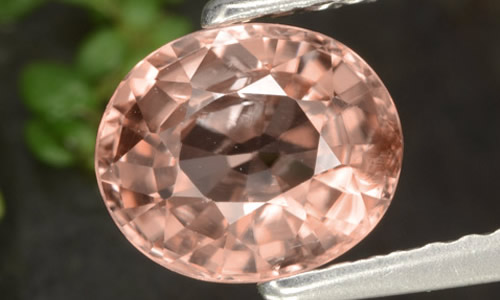|
Frequently Asked Questions (FAQ) / Specific Gravity & Gemstone Density |
What is the Meaning of "Specific Gravity" for Gemstones? What Exactly Does it Measure?

Specific gravity is a way to express the relative density of a gemstone. It is measured as the ratio of the density of the gemstone to the density of water, and is expressed as a number that indicates how much heavier the gemstone is compared to an equal volume of water. Scientifically, specific gravity is defined as a ratio of the mass of a given material to the mass of an equal volume of water at 4 degrees centigrade.
Most gemstone substances are two to four times denser than an equal volume of water. Specific gravities are expressed in decimal numbers, for example, 4.00 for corundum, 3.52 for diamond and 2.72 for quartz. Zircon is one of the densest gemstones (pictured above); it can have a specific gravity as high as 4.73! To calculate exact specific gravity values, various measuring devices are used. Rough approximations of the specific gravity of lighter stones can be made by using a series of liquids with known specific gravity values. For example, if a stone floats in a liquid with a specific gravity of 4 and sinks in a liquid with a specific gravity of 3, the specific gravity of the stone must lie between these values.
See our specific gravity chart for density ratings of the different types of gemstones.
Return to FAQ HOME |
